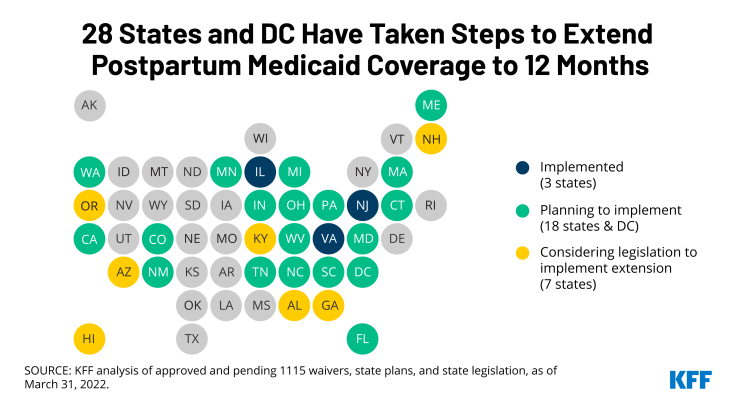States Look to Bolster Maternal Health
The Medicaid program finances about 4 in 10 births in the US. Federal law requires states to provide Medicaid coverage without cost sharing for pregnant individuals with incomes up to 138% of the federal poverty level and cover them up to 60 days after childbirth. In recent years, there has been growing interest in extending this postpartum coverage period for Medicaid to improve maternal health and coverage stability and to address long-standing racial disparities in maternal health outcomes.
Starting April 1, a provision in the American Rescue Plan Act (ARPA) of 2021 gives states a new option to extend Medicaid postpartum coverage to 12 months without having to seek a waiver. To date, 28 states and DC have taken steps to extend postpartum Medicaid coverage to pregnant individuals up to 12 months under this option or through a Medicaid waiver.
While this new ARPA option is taking effect, during the federal COVID-19 Public Health Emergency states already have been prohibited from disenrolling individuals from Medicaid. As a result, postpartum coverage has been continuous since the start of the coronavirus pandemic. However, once the Public Health Emergency is lifted, possibly later this year, the continuous enrollment requirement will end and many postpartum adults will be at risk of losing their Medicaid coverage, particularly those living in non-expansion states.
Visit our tracker for detailed information on state activity.
Source

